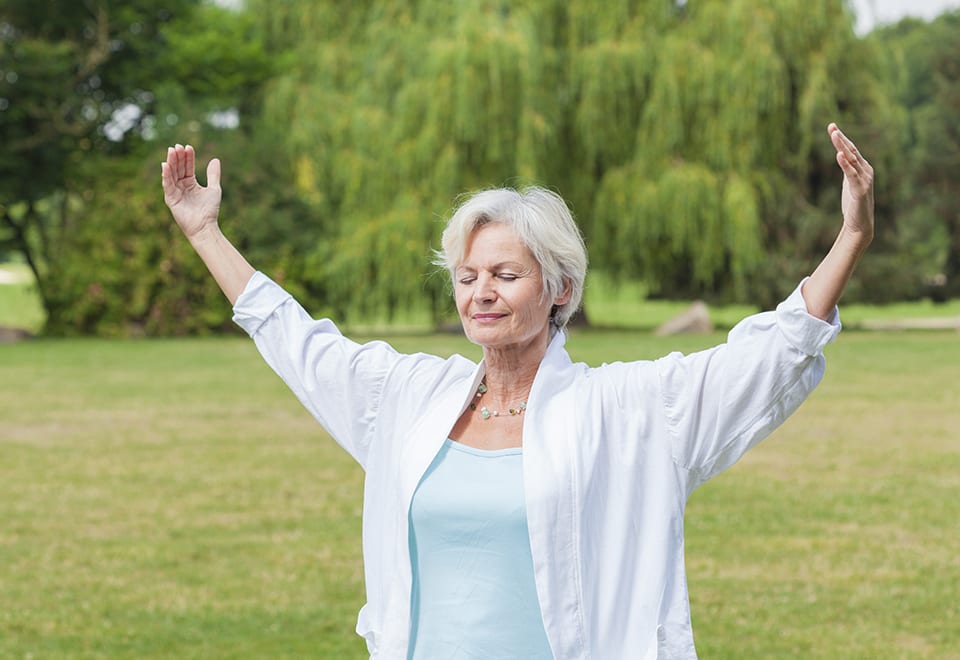Essential tips for staying fit and well in winter
When the days are shorter and the temperature drops, it can be tempting to stay indoors, be less active and eat calorie-dense comfort foods.
This may result in a weakened immune system and higher risks of developing illnesses such as the flu. Illness may be physical or mental. Some of us may experience a feeling of loneliness, some of us may experience a loss of motivation, and many of us may feel fatigued from time to time.
Looking after our health and well-being during the colder months starts with the simplest things, our daily habits, exercise routines, and diet. We’ve put together 5 simple tips to help you stay healthy in winter.
Tip 1 – Eating well to stay healthy in winter

We are what we eat. That’s why nutrition always plays an important part of leading a healthy lifestyle.
A well-balanced diet may benefit our body and mind in so many ways. Eating nutritious foods may help boost your immunity system and reduce the risk of injury. Add more vitamin C to your diet to help boost your immune system during the colder months. Vitamin C is an essential vitamin which our bodies can’t produce but can absorb through nutrition. Because vitamin C is a powerful antioxidant, it may assist in boosting our immune system.
Try to include 5 serves of veggies and 2 servings of fruits a day into your diet.
Enjoy winter seasonal vegetables, like broccoli and cauliflower, legumes and seasonal fruits such as mandarins and oranges.
In winter, most of us may prefer having comfort, hearty foods compared to a salad. Lentils are versatile and quick to prepare. They are packed with fibre, minerals, vitamins and antioxidants which may help reduce inflammation.
Tip 2 – Drink plenty of water

As 50-80% of our body is made up of water, staying well hydrated is essential for good health. During the winter months, when we all prefer staying near a fire or in a heated space, it is highly likely we can suffer from dehydration. Cooler temperatures may reduce our body’s thirst response; therefore, we may tend to drink less water during the colder months.
It is important to drink plenty of water throughout the day.
Keeping hydrated may keep your skin healthy, flush out toxins and avoid illness. There’s a higher chance dehydration can happen to younger children and older adults. As we age, the body’s ability to converse water slows down and we’re less likely to respond to changes in temperature.
Remember to drink at least 2 litres of water a day to keep yourself hydrated. If you don’t enjoy water, reach out for herbal tea. Avoid drinking coffee as it can make you even more dehydrated.
Tip 3 – Get active indoors

The winter weather may not be the best to get outdoors – so join an exercise group or physical activity program.
There are many options such as yoga, dancing or even indoor swimming. For many of us, it may be more difficult to stay motivated and committed to being active during winter.
However, taking the time to be active for just 30 minutes every day can help you stay healthy, positive and happy.
One way to help you feel motivated for exercise is to do it with your friends or join a social group for exercise. ACH Group offers exercise programs with our experienced exercise physiologists to customise a program that suits your need. Learn more about allied health services that are available to you.
Tip 4 – Get your flu shot

Colds and flu are common in winter and cause disruption to your home, social, and work life.
There are many reasons why the flu is more common in the colder months. The virus lives longer in a closed, indoor condition comparing to outdoors.
In winter, we spend more time indoors and have closer contact with one another, so it is easier for the flu virus to spread and for us to get infected.
The flu can affect people of all ages, however, people with long-term medical conditions and who have weakened immune systems are more likely to get the flu.
Don’t put yourself at risk of the flu. Contact your GP for the free vaccination or your local council or chemist for a low-cost alternative.
Tip 5 – Avoid stress and anxiety

Many of us may suffer from Seasonal Affective Disorder (SAD) during the winter season. SAD often occurs in the colder months which can negatively impact your mood and well-being.
If you’re feeling stressed or anxious, there are many ways to cope with these feelings.
Meditation and mindfulness exercises may help you to overcome any anxiety, stress and feelings of loneliness.
Try expressing any emotions you are feeling in ways such as painting, journaling, or speaking to your close ones. If you enjoy painting, why not participate in one of our art and culture experiences?
If you need further mental health support, contact the Beyond Blue Support Service. This is a free and confidential service that offers support on mental health and well-being.
Many of these tips are easy to do in our everyday life. Stay informed and up to date with our healthy ageing and wellbeing tips by following us on social media and browsing our blog.
Your best self starts with your health
Whether it’s being able to enjoy activities that you love or trying new ones, recovering from a setback, or managing an ongoing condition, we’re here to help. You can access services in your own home, or at locations across metropolitan Adelaide.
Learn more about health & wellbeing and contact us today.



